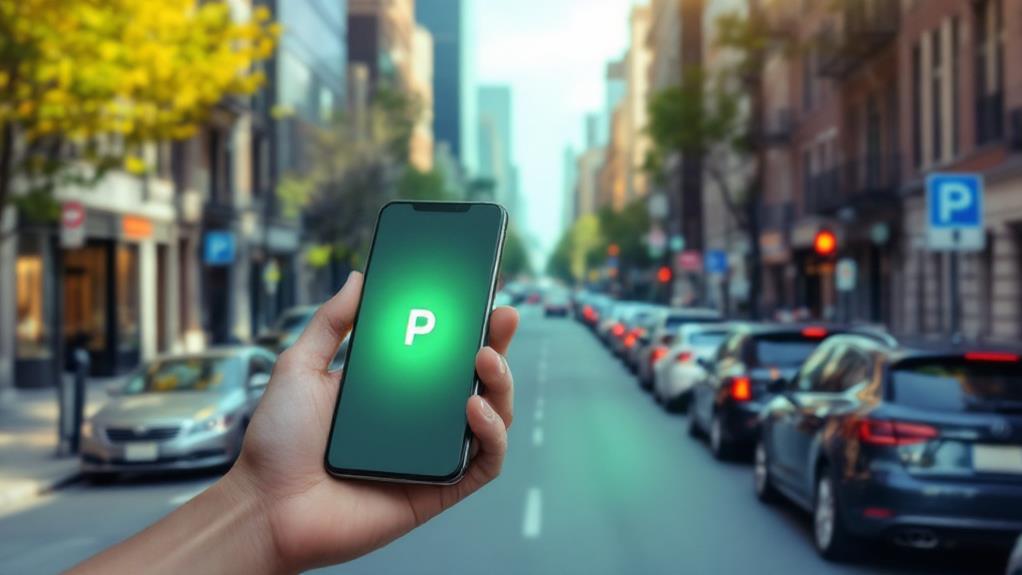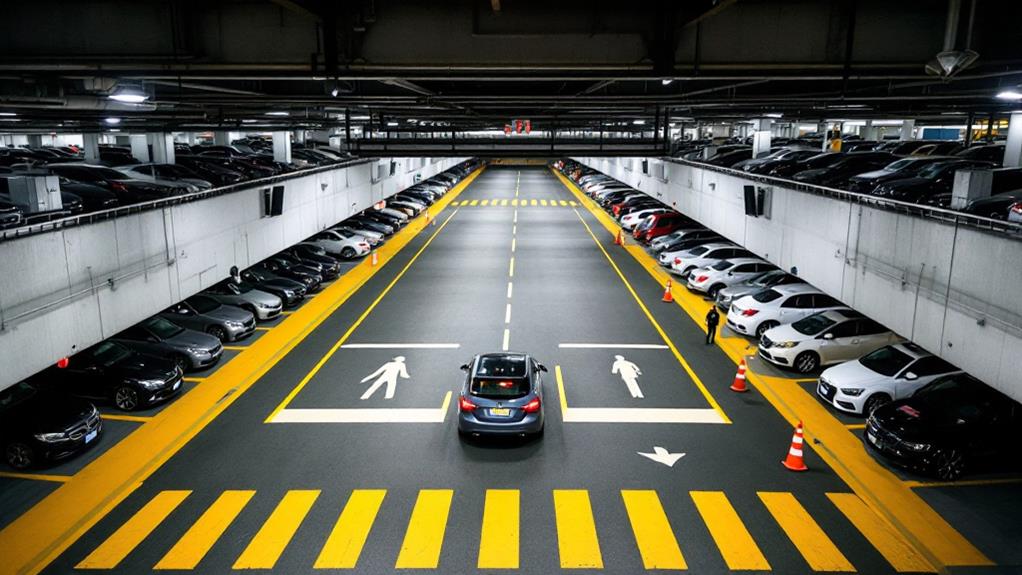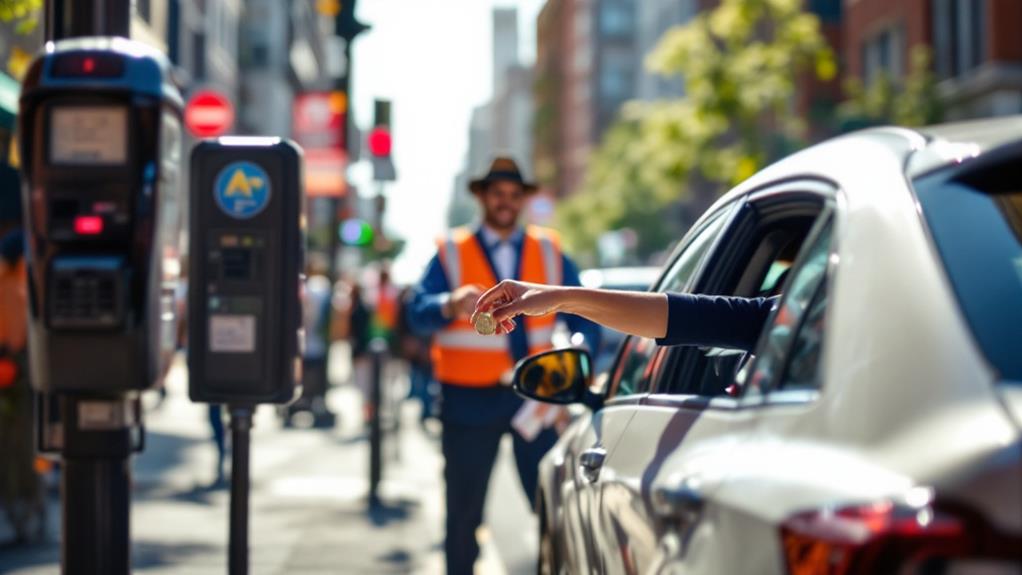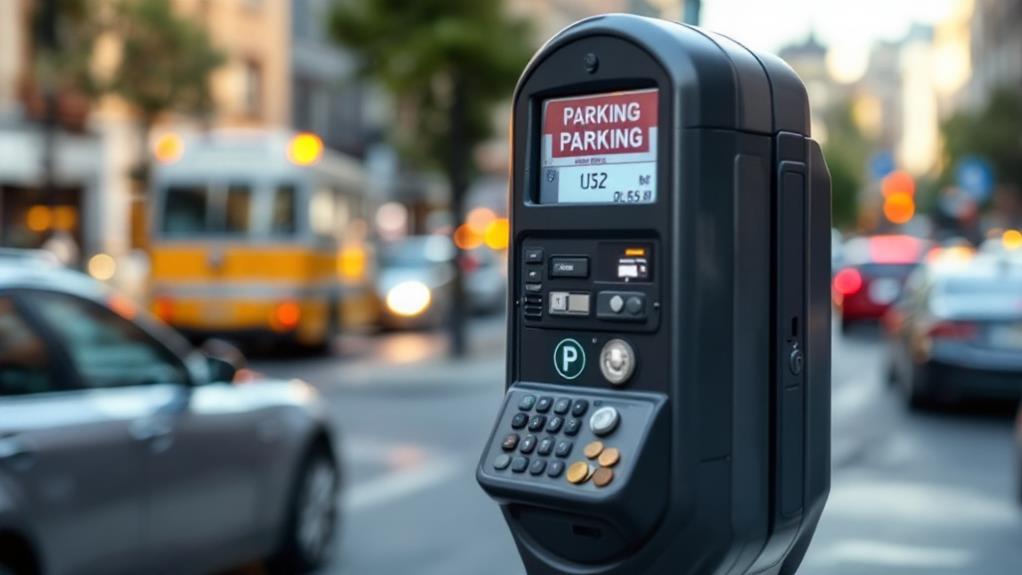How Early Should You Arrive to Find Parking in the City
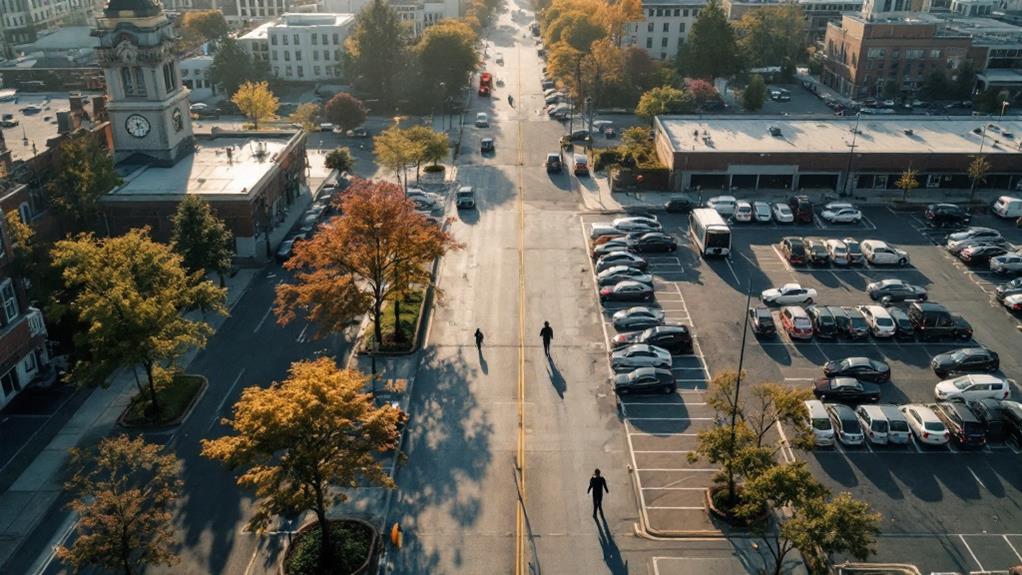
To find parking in the city, you should plan to arrive 30-60 minutes early, especially during peak hours or events. Downtown areas and popular destinations may require even more time. Weekdays from 7-9 AM and 4-6 PM are typically the most challenging, while weekends and holidays see increased congestion near attractions. Large events can dramatically reduce available parking, necessitating a 1-2 hour early arrival. Consider using mobile parking apps to locate and pay for spots in advance, or investigate alternative transportation options. By planning ahead and understanding local parking regulations, you'll increase your chances of a stress-free city visit.
Parking Challenges in Urban Areas

Nearly every driver has experienced the frustration of searching for parking in a thriving city. Urban areas present unique challenges when it comes to finding a spot for your vehicle. The high population density and limited parking spaces make it an arduous task, especially during peak travel times like rush hour.
You'll often find yourself competing with countless other drivers for the few available spots. Special events, holidays, and weekends only exacerbate the problem, as visitors flood city centers and further strain parking resources. Once you do locate a potential space, you'll need to navigate complex regulations, pay stations, and time limits.
Comprehending the various payment options and designated areas for parking is imperative. You might encounter different rules for street parking, garages, or parking in a private lot. To improve your chances of finding a spot, consider using mobile parking apps or reserving spaces in advance. Being flexible with your arrival time can also help you avoid the worst of the parking crunch. Remember, patience and planning are key when tackling urban parking challenges.
Recommended Arrival Time
To make your city parking experience less stressful, it is crucial to plan ahead for your arrival time. Experts recommend arriving at least 30-60 minutes early, especially during peak hours or events. This extra time allows you to navigate through various parking options and find an available spot before your scheduled activities begin.
Downtown areas and popular destinations often experience high demand for parking, so you'll want to arrive even earlier in these locations. As you search for a spot, keep an eye out for parking signs and pay stations to comply with local regulations. Consider using mobile parking apps like ParkHouston or ParkMobile to locate open spots and pay for your parking in advance, saving time and hassle.
Remember that parking lots and garages can fill up quickly, particularly during busy periods. By arriving early, you'll have a better chance of securing a spot and avoiding last-minute stress. If you're still struggling to find parking, consider alternative transportation options like public transit, rideshare, or carpooling. These alternatives can eliminate the need for parking altogether and help you arrive at your destination on time and worry-free.
Peak Hours and Events
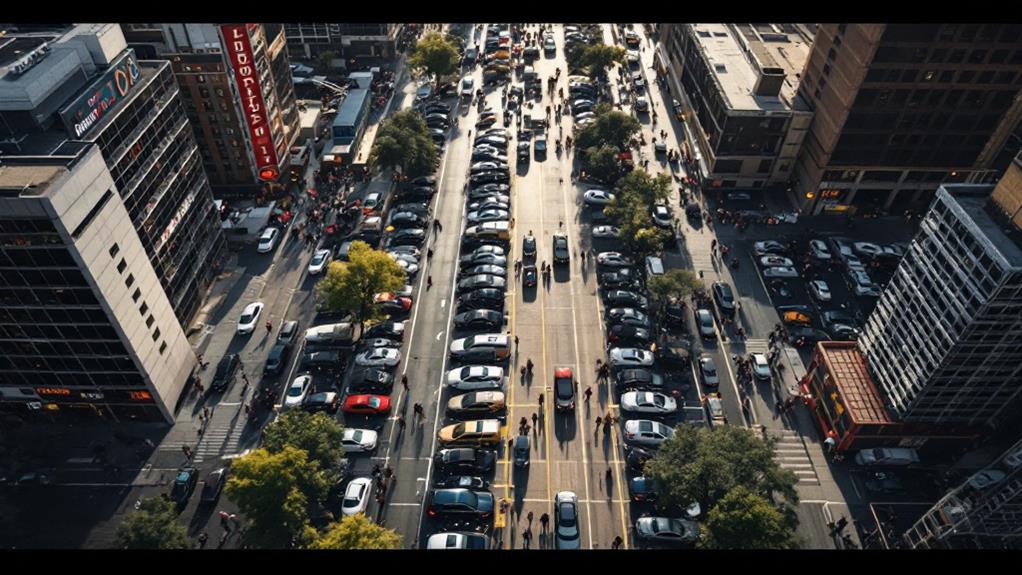
While arriving early gives you an advantage, understanding peak hours and events is key to commanding city parking. Weekdays from 7-9 AM and 4-6 PM are the most challenging times to find a spot, as commuters flood the streets. Weekends and holidays also see increased congestion, especially near popular attractions.
Large events like concerts, festivals, and sports games can dramatically reduce available parking. In these cases, you'll need to arrive at least 1-2 hours early to secure a spot. Downtown areas are particularly crowded, so plan to arrive 30-60 minutes early during peak times.
To investigate these challenges, consider alternative options. Utilize parking apps to locate available spaces or reserve spots in advance. Check the signs carefully, as several blocks become tow-away zones during mobility lane hours. Don't forget to search parking garages, which often have more availability than street parking.
If you're lucky, you might find Free Parking in some areas, but these spots fill up quickly. Be prepared to walk a few blocks or use public transportation to reach your final destination, especially during busy periods.
Free vs. Premium Parking Options
Free parking options are often overlooked by city drivers, but they can be a great way to save money if you're willing to put in a little extra effort. In this case, you can find free parking in the upper levels of three designated parking garages, providing easy access to retailers, restaurants, and the plaza.
If convenience is your priority, premium parking options are available. These include street-level and first-floor garage parking that you can pay for via text or on-site payment machines. A portion of the proceeds from premium parking meters goes to a local charity, so you're contributing to a good cause while you park.
For those who prefer a hands-off approach, valet parking is offered in three designated areas for $10. Some restaurants even provide validation for their patrons. Sewell customers enjoy complimentary valet parking as an added perk.
When choosing between free and premium parking options, consider:
- Your budget and willingness to walk
- Time constraints and convenience needs
- Whether you're dining at a restaurant with valet validation
Planning Ahead for Seamless Visits
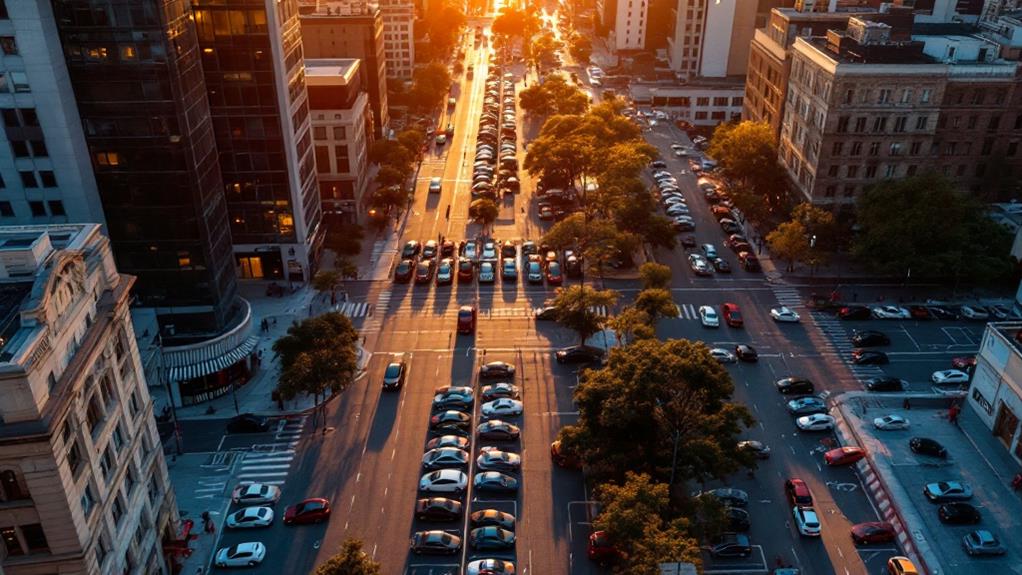
Planning ahead is key to a stress-free parking experience in the city. When visiting Downtown Houston or attending popular events, arrive 30-45 minutes early to secure a spot. Check the event website or city parking guides beforehand to identify the most convenient and affordable options. Consider alternatives like public transportation, ridesharing, or carpooling to avoid parking hassles altogether.
Be prepared to park farther away and walk to your destination, as nearby spots fill up quickly. Employ mobile parking apps like ParkHouston or SpotHero to reserve and pay for parking in advance, guaranteeing a spot and saving time. These apps often produce a printed receipt for proof of payment, which is indispensable when using a private parking lot or adhering to Transportation Code parking regulations.
If you opt for on-street parking, familiarize yourself with local parking rules and time limits. Many meters in Downtown Houston accept credit cards and produce a printed receipt for your dashboard. By planning ahead and exploring all available options, you'll certify a seamless visit to the city without the stress of last-minute parking searches.
Navigating City Parking Systems
Wayfinding is vital when tackling city parking systems. You'll find that many urban areas now offer mobile apps like ParkHouston, which can revolutionize your parking experience. These apps allow you to locate available spaces, pay for your parking sessions, and even extend your time remotely.
To navigate city parking effectively, consider these strategies:
- Employ park-and-ride facilities or public transportation to avoid downtown parking hassles
- Research parking options and rates in advance to budget appropriately
- Check for special event or holiday parking restrictions to prevent towing or fines
Don't overlook the potential savings offered by parking meters and garages during off-peak hours and weekends. These discounted or free parking opportunities can drastically reduce your costs. Additionally, staying informed about parking restrictions is indispensable. Always look for signs indicating time limits, permit requirements, or temporary restrictions due to events or construction.
